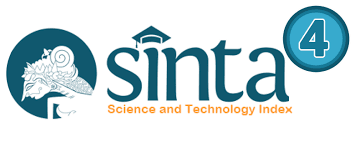PARADIGMA MUTU TERPADU: MENTRANSFORMASI PENDIDIKAN UNTUK MASA DEPAN GEMILANG
DOI:
https://doi.org/10.34125/jmp.v10i3.656Keywords:
Manajemen Mutu Terpadu, TQM, Pendidikan, Transformasi Pendidikan, Kualitas PendidikanAbstract
The importance of quality in education extends beyond mere numbers on report cards or accreditation, but encompasses the entire process and outcomes that meet or exceed stakeholder expectations. Superior quality will produce graduates who are competent, competitive, innovative, and ready to face the challenges of the times. Education is a key pillar of a nation's progress, yet it faces challenges of relevance and quality in the era of digital disruption. This article examines Total Quality Management (TQM) as a transformative paradigm in education. With a focus on customers (students), strong leadership, staff engagement, continuous improvement, a data-driven approach, and process management, TQM offers a holistic framework. Through a literature review, this article analyzes the principles, pillars, implementation strategies, and challenges and opportunities of TQM implementation in achieving sustainable educational excellence. The discussion shows that TQM can increase institutional competitiveness, produce quality graduates, strengthen reputations, and ensure innovation and relevance in education in the future. Adopting TQM is a strategic investment for human resource development and national progress.
References
ASQ (American Society for Quality). (2015). The Certified Quality Manager Handbook. ASQ Quality Press.
Crosby, P. B. (1979). Quality is Free: The Art of Making Quality Certain. McGraw-Hill.
Deming, W. E. (1986). Out of the Crisis. MIT Press.
Evans, J. R., & Lindsay, W. M. (2008). Managing for Quality and Performance Excellence (7th ed.). South-Western Cengage Learning.
Feigenbaum, A. V. (1991). Total Quality Control (3rd ed.). McGraw-Hill.
Fullan, M. (2001). The New Meaning of Educational Change (3rd ed.). Teachers College Press.
Gardner, H. (2006). Multiple Intelligences: New Horizons in Theory and Practice. Basic Books.
Hammer, M., & Champy, J. (1993). Reengineering the Corporation: A Manifesto for Business Revolution. HarperBusiness.
Handzic, M., & Zhou, A. (2005). Knowledge Management: An Evolutionary Approach. World Scientific Publishing.
Harvey, L., & Green, D. (1993). Defining Quality. Assessment & Evaluation in Higher Education, 18(1), 9-34.
Ishikawa, K. (1985). What is Total Quality Control? The Japanese Way. Prentice-Hall.
Johnson, A., & Lee, B. (2021). The Future of Education: Quality and Innovation. University Press.
Juran, J. M. (1989). Quality Control Handbook (4th ed.). McGraw-Hill.
Kotler, P., & Armstrong, G. (2018). Principles of Marketing (17th ed.). Pearson.
Kotler, P., & Keller, K. L. (2016). Marketing Management (15th ed.). Pearson.
Kotter, J. P. (1996). Leading Change. Harvard Business School Press.
Marlowe, B. A., & Page, M. L. (1995). Creating and Sustaining the Constructivist Classroom. Corwin Press.
Masaaki, I. (1986). Kaizen: The Key to Japan's Competitive Success. McGraw-Hill.
Oakland, J. S. (2003). Total Quality Management: Text with Cases (3rd ed.). Butterworth-Heinemann.
Hidayatullah, R. R., Kamali, M. F., & T,. N. A. (2024). Innovative Dakwah Strategies Through Social Media: Case Study of Islamic Communication Approaches in Indonesia. INJIES: Journal of Islamic Education Studies, 1(1), 16–27. https://doi.org/10.34125/injies.v1i1.3
Hidayati, E., & Hutagaol, B. A.-R. (2025). An Analysis of Hasan Hanafi’s Tafsir Method: Hermeneutics as An Interpretative Approach. INJIES: Journal of Islamic Education Studies, 2(1), 39–48. https://doi.org/10.34125/injies.v2i1.22
Iskandar, M. Y., Nugraha, R. A., Halimahturrafiah, N., Amarullah, T. A. H., & Putra, D. A. (2024). Development of Android-Based Digital Pocketbook Learning Media in Pancasila and Citizenship Education Subjects For Class VIII SMP . JERIT: Journal of Educational Research and Innovation Technology, 1(2), 51–60. https://doi.org/10.34125/jerit.v1i2.13
Islam, I., & Ishaq, M. (2024). Development of Journalism Development Strategies in The Digital Era at Darul Mukhlasin High School. JERIT: Journal of Educational Research and Innovation Technology, 1(2), 71–79. https://doi.org/10.34125/jerit.v1i2.11
Peters, T. J., & Waterman, R. H. (1982). In Search of Excellence: Lessons from America's Best-Run Companies. Harper & Row.
Porter, M. E. (1985). Competitive Advantage: Creating and Sustaining Superior Performance. Free Press.
Powell, T. C. (1995). Total Quality Management as Competitive Advantage: A Review and Empirical Study. Strategic Management Journal, 16(1), 15-37.
Robbins, S. P., & Judge, T. A. (2017). Organizational Behavior (17th ed.). Pearson.
Sallis, E. (2002). Total Quality Management in Education (3rd ed.). Kogan Page.
Schlechty, P. C. (2001). Shaking Up the Schoolhouse: How to Support and
Sustain Educational Innovation. Jossey-Bass.
Senge, P. M. (1990). The Fifth Discipline: The Art & Practice of The Learning Organization. Doubleday/Currency.
Smith, J. (2020). Challenges in Modern Education: A Global Perspective. Academic Publishers.
Sholeh, M. I., Habibulloh, M., Sokip, S., Syafi’i, A., ‘Azah, N., Munif, M., & Sahri, S. (2025). Effectiveness of Blended Learning Strategy to Improving Students’ Academic Performance. JERIT: Journal of Educational Research and Innovation Technology, 2(1), 1–13. https://doi.org/10.34125/jerit.v2i1.17
Saputra, W., Akbar, A., & Burhanuddin, B. (2024). Modernization of Da’wah Methods in Fostering Interest Among Young Generation (Case Study QS. Al-Ahzab Verse 46). INJIES: Journal of Islamic Education Studies, 1(2), 61–70. https://doi.org/10.34125/injies.v1i2.7
Septiani, D., Nugraha, M. S., Efendi, E., & Ramadhani, R. (2024). Strengthening Tuition Governance Towards Transparency and Accountability at Ummul Quro Al-Islami Modern Boarding School Bogor. INJIES: Journal of Islamic Education Studies, 1(2), 83–90. https://doi.org/10.34125/injies.v1i2.10
Syafii, M. H., Rahmatullah, A. . S., Purnomo, H., & Aladaya, R. (2025). The Correlation Between Islamic Learning Environment and Children’s Multiple Intelligence Development. INJIES: Journal of Islamic Education Studies, 2(1), 29–38. https://doi.org/10.34125/injies.v2i1.17
Wagner, T. (2012). Creating Innovators: The Making of Young People Who Will Change the World. Scribner.
Downloads
Published
How to Cite
Issue
Section
License
Copyright (c) 2025 Jurnal Manajemen Pendidikan

This work is licensed under a Creative Commons Attribution-ShareAlike 4.0 International License.














